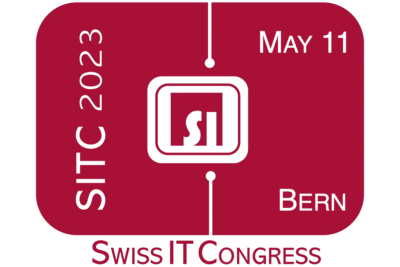ABSTRACT:
The European Union heads for the establishment of a digital single market among its members. This article discusses whether Switzerland should ignore this or look for possibilities that will allow Swiss companies and Swiss citizens to participate in this emerging borderless market.
THE SITUATION: The European Union (EU) tries to establish a digital single market (DSM) in order to implement the European freedoms in cyberspace. For this purpose the EU takes concrete actions – from strategies and regulations to standardization and financial support for implementation. If these actions are successful, this will significantly push online business inside the EU and all countries affiliated to the DSM. However, while Switzerland has played a notable part in the preparation of a key piece of legislation for the DSM – it played two leadership roles in the large scale pilot STORK 2.0 which contributed to paving the way for the eIDAS regulation – Switzerland now has moved back to the seats in the audience again. Some key actors even suggested measures to make a future affiliation of Switzerland to the emerging DSM very complicated (although they declared they just did that to enable the future affiliation). Apart from such games … the big question is: Is the digital single market a fiction? Is it a vision? Or is it a reality to come true? Should we bet on its success, should we bet on its failure, or should we pause and wait?
THE BASIC PARADOX: At first, the engagement for a digital single market is doubly surprising: Why does the already established single market not comprise the digital market in cyberspace? And why would anyone bother to establish more freedom in cyberspace since the freedom is generally much higher there than in the physical world? Well, it is the second question which answers the first. It is because there is so much more freedom in cyberspace that business in cyberspace is more restricted.
So far, lots of business (and government) activities are ruled out in the cyberspace because trust and confidence are missing – that is, trust and confidence instruments are confined to smaller financial risks. If we pay with credit cards, fraud is nearly completely handled by credit card companies, but this takes place within defined limitations on the amount of money involved in the transactions. If we perform e-banking, fraud is widely (but by no means completely) handled by the banks, whereby limitations in general allow for higher transactions than with credit cards. However, it is still not possible to buy or sell houses on the Internet or to establish other contracts of significant impact, because no satisfactory instruments of trust have been established. And although there may be little need for online real estate commerce, the absence of trust instruments also blocks offline business to go online also in those areas where there is a need for online business. For this reason many countries have establish legally recognized electronic identities, legally recognized digital signatures, and further high level infrastructure services to enable online business.
THE TWO PROBLEMS: Unfortunately, there are just two problems with these high level trust infrastructure services: The first problem is user take-up. Some countries, like Denmark for example, have managed to establish a high user take-up for its electronic identity, while others like Germany have failed to do so. Austria recently demonstrated that there is a third alternative, namely that countries may establish a satisfactory user take-up only after many years. The second problem is that all the trust and confidence instruments are limited to national boundaries. Online business therefore is more limited to national boundaries than offline business, which is why the EU takes concrete and costly actions to enable a dingle single market!
I hear you, crowd! Name it, name it, name the cross-border business that will come, you are calling! Indeed, the question is whether the story of the digital single market is a fiction or a vision. Why would we really want to do business or government transactions across border lines online? In times when travelling is so much easier than it used to be and a significant part of transactions can be done with credit cards, why would we head for more? It is very true: There are no killer business domains of cross-border nature in sight!
ANOTHER PARADOX: Well … maybe we should read the last word above twice: sight! The limitations of cyberspace – combined with the reputation of cyberspace for porn and less legal things – have blocked our views and visionary thinking. Funny enough, our visionary thinking returns, when we talk about abandoning any state-related trust and confidence. For example, nearly everyone is clapping hands when the rise of stateless currencies like Bitcoin is announced – despite of known malfunctions and systemic risks. But the great thing about stateless currencies is that they encourage visionary thinking about tearing down national borders and the limitations of national regulations. This suggests that the real hindrance for the digital single market is that it bases its freedoms on state regulation, which leads to a think-stop.
THE FIRST STEP TO GO: Waiting in the audience until programs outside are completed is a good option, if programs fail and it is a disastrous one, when programs succeed. Therefore, we should clarify our strategy, evaluate the options, and identify our own goals. The State Secretariat of Economic affairs (SECO) has mandated Bern University of Applied Sciences (BFH) to monitor those activities in the European Union and in its Members States, which are directed towards the implementation of the digital single market. The now established DSM Observatory regularly reports its observation and derived policy recommendations to the federal government. Members of SI are invited to participate in a stakeholder workshop, where key observations will be presented and the options for Switzerland will be discussed.
AUTHOR:
Reinhard Riedl, MEng PhD, is a mathematician who focuses on transdisciplinary research combining computer science, business administration, law, political science, economics, psychology, sociology, and ethnology.









